Basic measurement concepts Measurement Worksheets for Ages 4-6
7 filtered results
-
From - To
Unlock your child's understanding of fundamental measurement concepts with our engaging worksheets designed for ages 4-6. These interactive activities introduce young learners to the basics of measuring length, weight, and volume in a fun and stimulating way. Each worksheet combines colorful visuals, simple instructions, and age-appropriate challenges to keep your child captivated while developing their math skills. Perfect for parents and educators, our easy-to-print resources help reinforce essential concepts and build confidence in early learners. Explore the world of measurement with our thoughtfully crafted worksheets and watch your child's skills grow as they learn through play. Start measuring their success today!
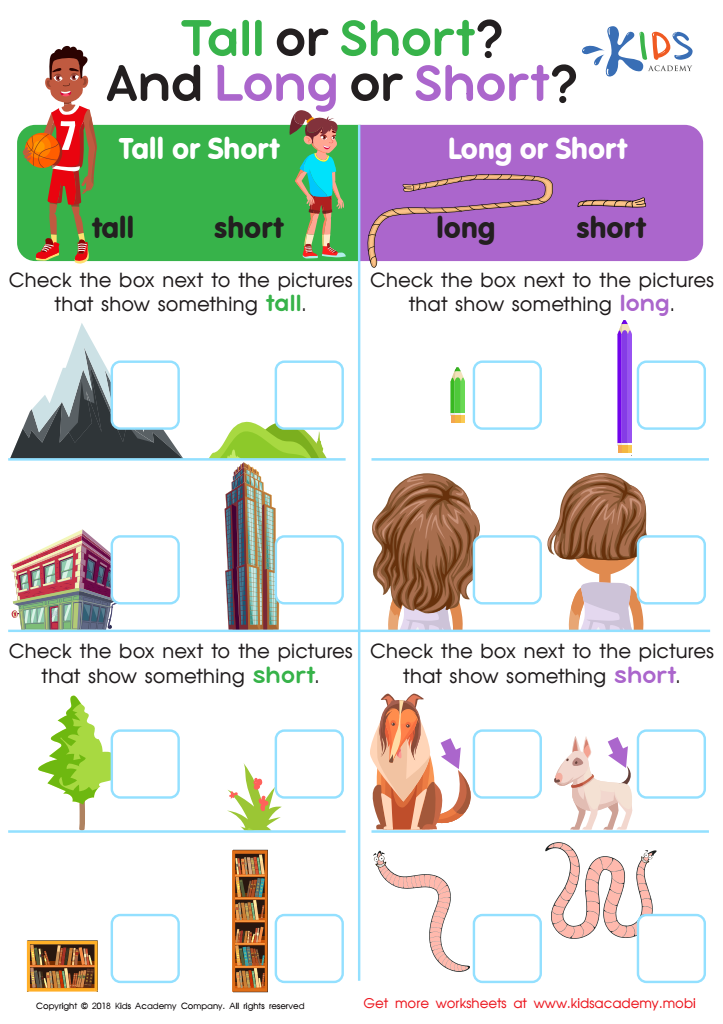

Tall or Short and Long or Short? Worksheet
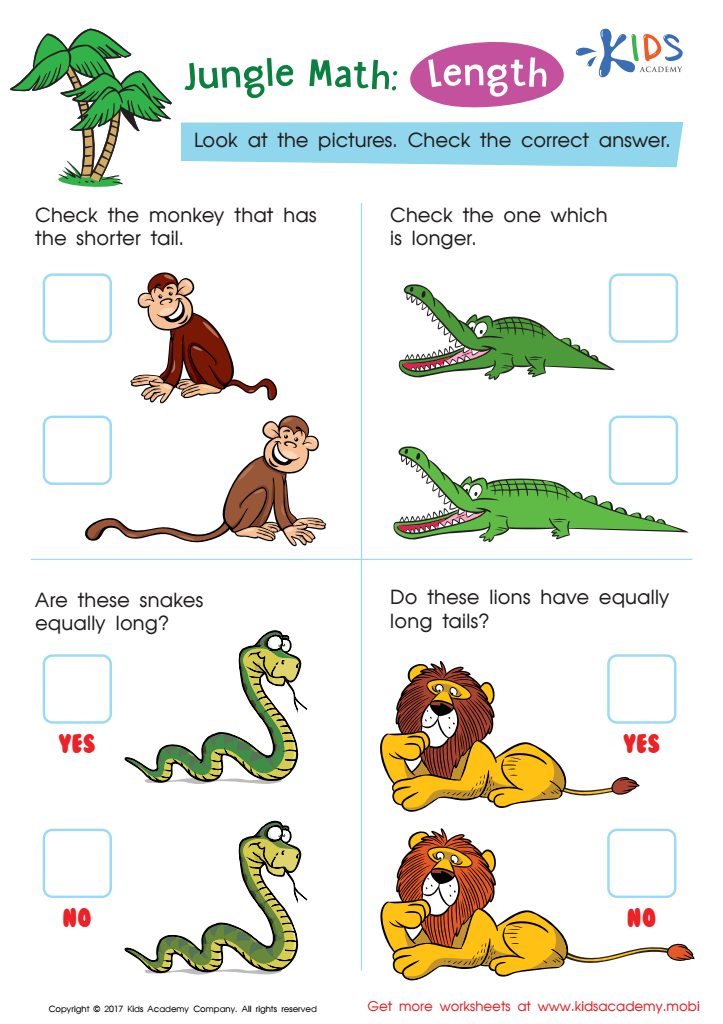

Which One Is Longer - Length Worksheet
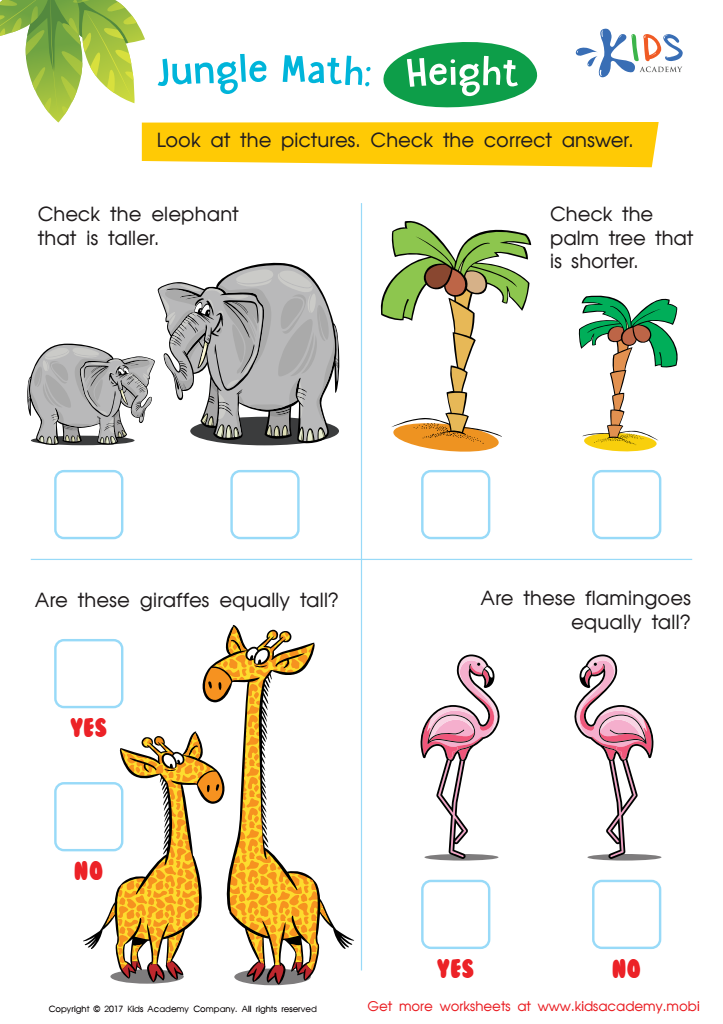

Which Is Taller Worksheet
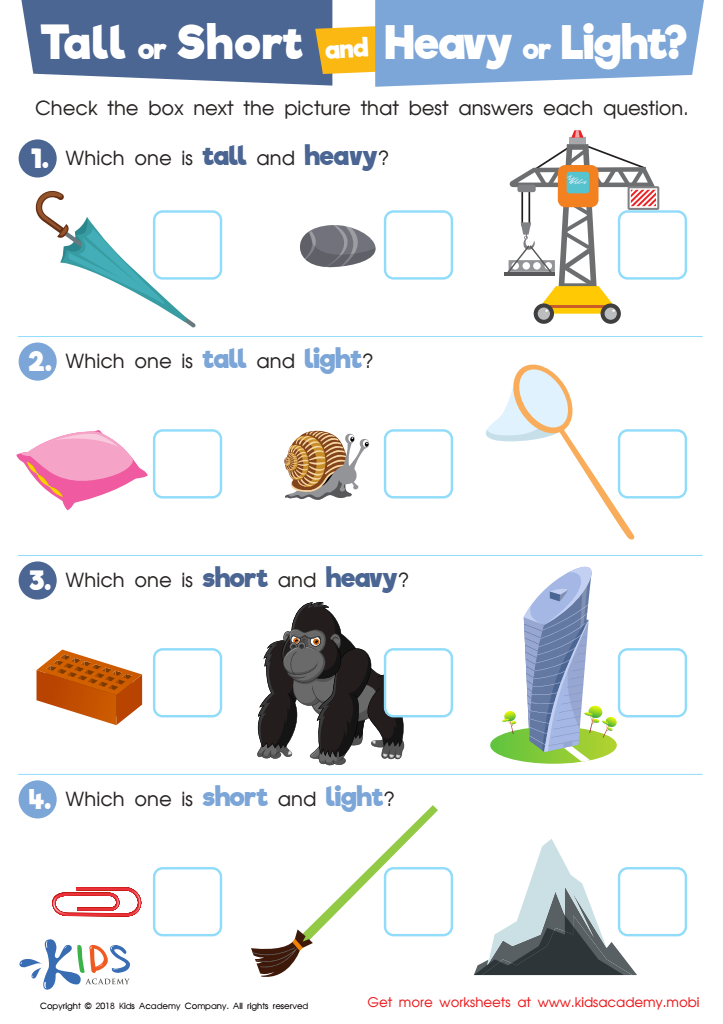

Tall or Short and Heavy or Light? Worksheet
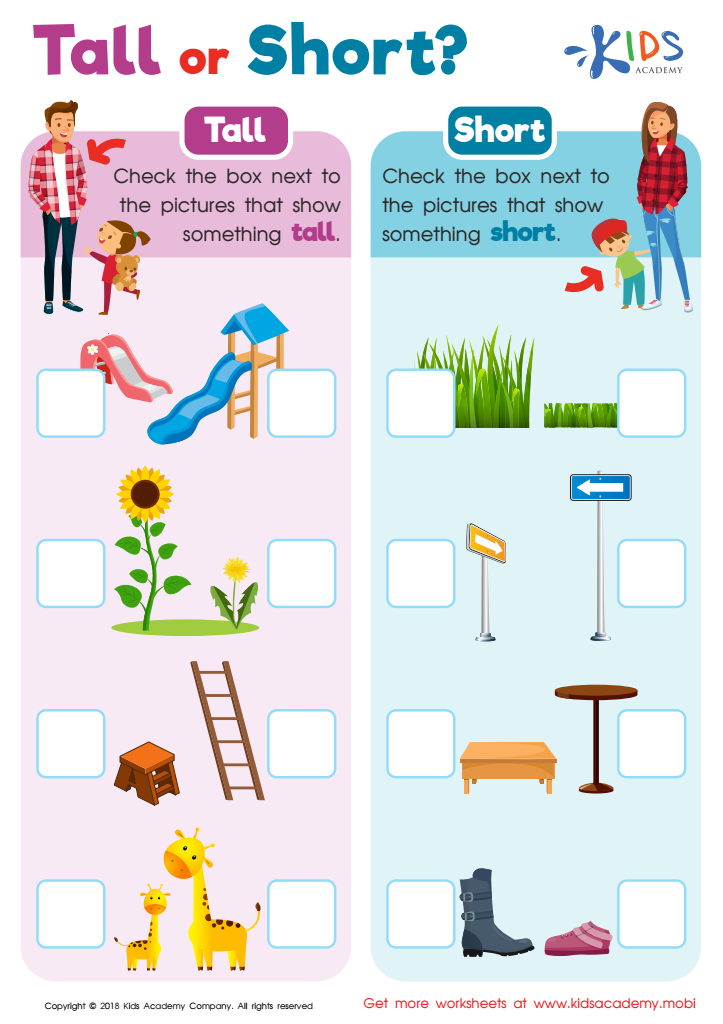

Tall or Short? Worksheet
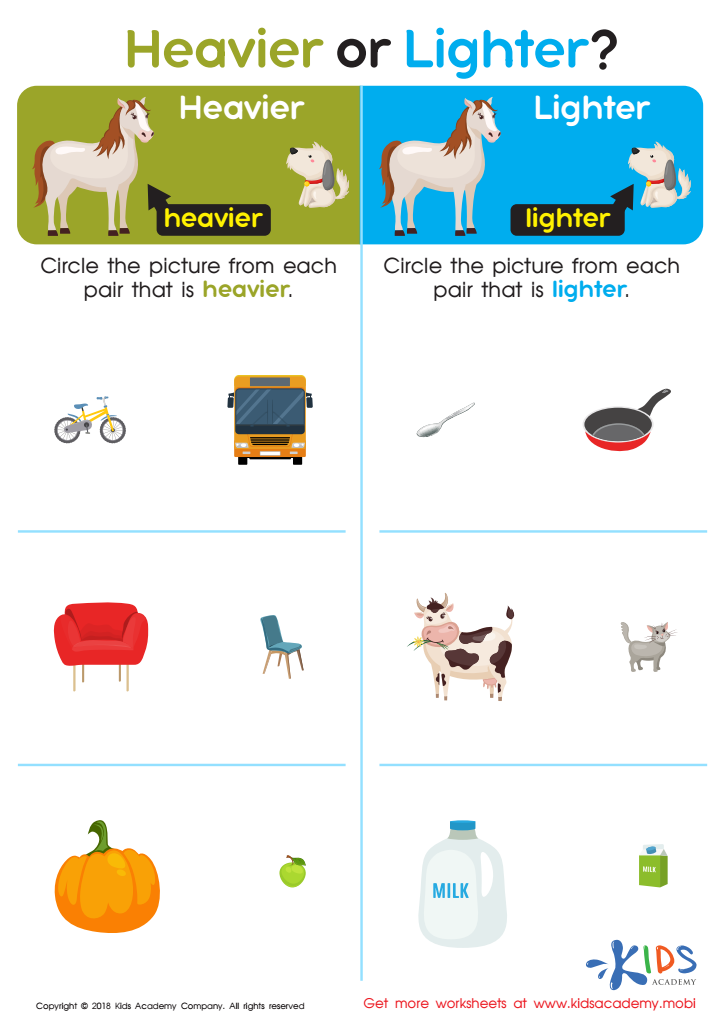

Heavier or Lighter? Worksheet
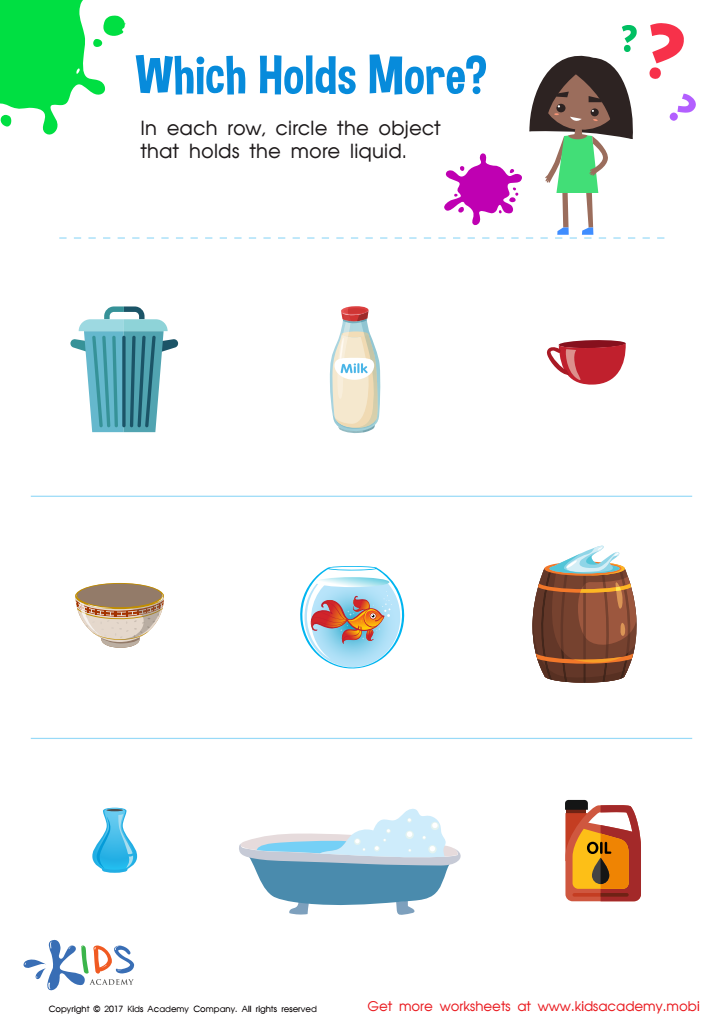

Which Holds More: Capacity Worksheet
Parents and teachers should prioritize basic measurement concepts for children ages 4-6 because these skills form the foundation for critical thinking and problem-solving in both mathematics and everyday life. At this age, children learn to compare lengths, weights, and volumes through hands-on experiences, cultivating a deeper understanding of the world around them. By introducing measurement concepts, children can develop spatial awareness, learn to classify and organize objects, and enhance their vocabulary, utilizing terms like "longer," "heavier," and "fuller."
Understanding measurement empowers young learners to engage in practical activities, such as cooking or building, where they can make predictions and verify outcomes, fostering a sense of accomplishment. This practice also supports cognitive development, encouraging them to think logically and make connections between different concepts. Furthermore, early exposure to measurement can enhance their confidence in tackling more complex math problems in the future, bridging the gap to advanced skills.
Engaging in activities related to measurement encourages collaborative play, which is pivotal for social skill development. In summary, integrating basic measurement concepts into early childhood education equips children with essential life skills that will serve them throughout their academic journey and beyond.
 Assign to My Students
Assign to My Students
















